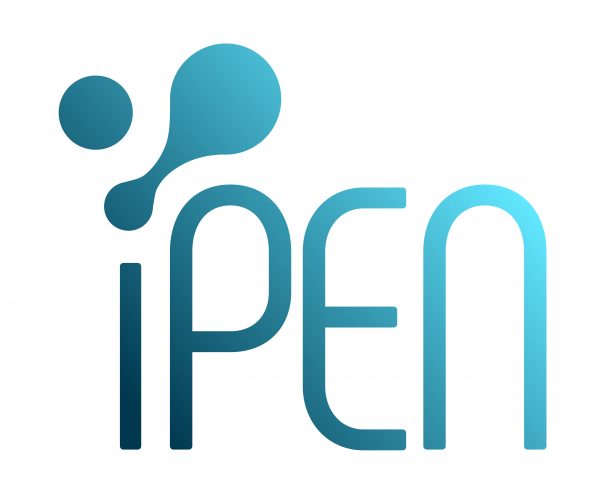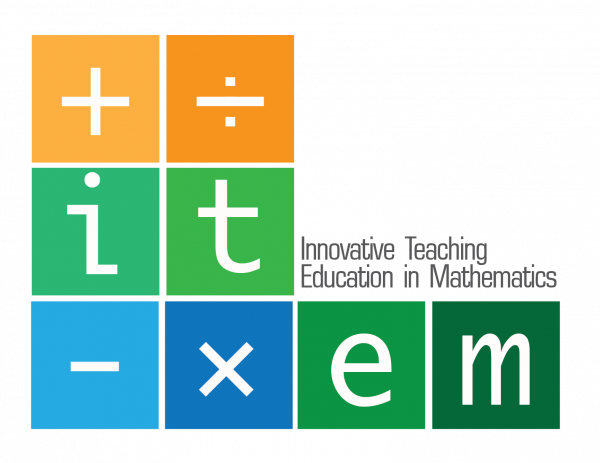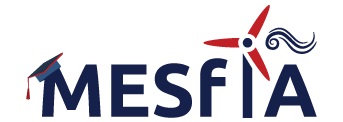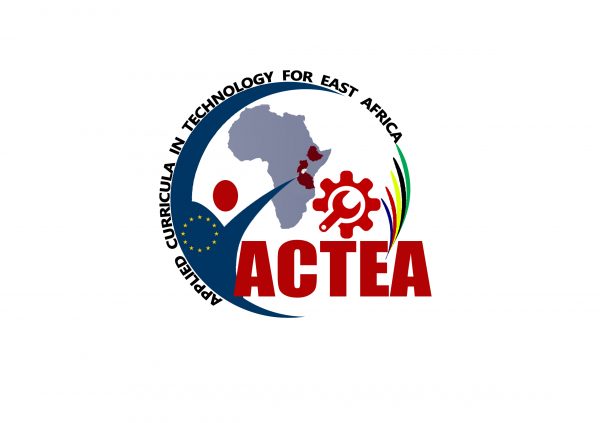Capacity-building projects in the field of higher education support the modernization, accessibility, and internationalization of higher education in Partner Countries. These projects build on the success of the Alfa, Edu-link, and Tempus programs.
The projects aim to encourage cooperation between the EU and Partner Countries and support eligible Partner Countries in addressing challenges in the management and governance of their higher education institutions. This includes improving the quality of higher education, developing new and innovative education programs, modernizing higher education systems through reform policies as well as fostering cooperation across different regions of the world through joint initiatives.
There are 2 types of capacity-building projects:
- Joint projects: aimed at organisations to help improve curriculums, governance, and the strengthening of relations between higher education systems.
- Structural projects: aimed at promoting reforms in higher education systems, modernizing policies, governance, and strengthening relations between higher education systems and the wider economic and social environment.
Capacity-building projects can be:
- National projects involving institutions from only one eligible Partner Country
- Multi-country projects within one single region, involving at least two countries from this region
- Multi-country projects involving more than one region and involving at least one country from each region concerned
E-tutorial on the international dimension of Erasmus+. This e-tutorial provides information about opportunities available to Higher Education Institutions (HEIs) and their staff and students based in Partner Countries.
E-tutorial on how to prepare a competitive proposal. This e-tutorial provides information on how to apply to funding opportunities.
Info session Erasmus+ Capacity Building in the Field of Higher Education: How to successfully complete and finalise a project proposal. This Info session provides information on the 2019 Call for proposals and on how to complete a project proposal.
Info session Erasmus+ Capacity Building in the Field of Higher Education: Focus on Asia. This Info session provides information on the 2019 Call for proposals and on how to prepare a competitive proposal for the Asian Region.
The Table of Projects table provides basic details about projects funded under the Capacity Building in Higher Education action of the Erasmus+ program: project number, project type, project title, list of beneficiaries and their PICs, participating countries, names, and e-mail addresses of contact persons, budget awarded and project summary as provided in the initial application. For further information on capacity-building projects in the field of higher education please refer to the Erasmus+ Programme Guide.
What does it support
Capacity-building projects in the field of higher education include the following activities:
Joint Projects
- The development, testing, and adaptation of:
- curricula, courses, learning materials and tools
- learning and teaching methodologies and pedagogical approaches,
- new forms of practical training schemes and study of real-life cases in business and industry
- university-enterprise cooperation and business start-ups
- new forms of learning and providing education and training
- virtual mobility, open educational resources
- guidance, counseling and coaching methods and tools
- tools and methods for professionalization and professional development of academic and administrative staff
- quality assurance at the program and institution level
- new governance and management systems and structures
- modern university services e.g. for financial management, international relations, student counseling and guidance, academic affairs and research
- Strengthening of the internationalisation of HEI and capacity to network effectively in research, scientific and technological innovation
- Upgrading of facilities
- Staff trainings
Structural Projects
- strengthening the internationalization of higher education systems
- introducing Bologna-type reforms (three-level cycle system, quality assurance, evaluation, etc.)
- implementing transparency tools such as credit systems, accreditation procedures, guidelines for the recognition of prior and non-formal learning, etc.
- establishment of National Qualification Frameworks;
- development and implementation of internal and external quality assurance systems/guidelines
- development and implementation of new approaches and tools for policy making and monitoring, including the establishment of representative bodies, organizations or associations
- strengthening the integration of education, research, and innovation.
In more concrete terms, these activities can include:
- surveys and studies on specific reform issues
- policy and expert advice
- conferences, seminars, workshops, round tables
- staff training on policy issues
- the organisation of awareness-raising campaigns
For detailed information on activities please refer to the Erasmus+ Programme Guide.
Who can benefit from it
Participating institutions must be established in a Programme Country or eligible Partner Country belonging to regions 1 to 4 and 6 to 11 (see Part A of the Erasmus+ Programme Guide).
Eligible participating organizations include the following:
- any public or private organization offering higher education degrees and recognized diplomas
- a non-profit organization, association, NGO (including European Youth NGOs)
- a national Youth Council
- a public body at local, regional or national level
- a school/institute/educational center (at any level, from pre-school to upper secondary education, and including vocational education and adult education);
- a public or private, a small, medium or large enterprise (including social enterprises)
- a social partner or other representatives of working life, including chambers of commerce
- craft/professional associations and trade unions
- an HEI
- a research institute
- a foundation
- an inter-company training center
- a cultural organization, library, museum
- a body providing professional counseling and information services.
This list includes organizations that can benefit from EU funding. Please note however that not all these organizations can submit an application.
What Support is available
The Minimum grant that can be awarded is 500.000€
The maximum grant that can be awarded is 1.000.000€
For more information please refer to the project manual
Who can apply
Organizations that can apply must be established in a Programme Country or eligible Partner Country belonging to regions 1 to 4 and 6 to 11 (see Part A of the Erasmus+ Programme Guide).
Organizations that can apply include:
- an HEI
- an association or organization of HEIs
- a legally recognized national or international rector, teacher or student organization (only for structural projects)
National projects involving institutions from only one eligible Partner Country require the participation of:
- minimum 1 HEI from at least two of the Programme Countries taking part in the project
- minimum of 3 HEIs from the Partner Country taking part in the project
- at least as many Partner Country HEIs as Programme Country HEIs
Multi-country projects require the participation of:
- minimum 1 HEI from at least two of the Programme Countries taking part in the project
- minimum of 2 HEIs from each Partner Country taking part in the project
- at least as many Partner Country HEIs as there are Programme Country HEIs
Please note: HEIs located in a Programme Country must hold a valid Erasmus Charter for Higher Education (ECHE). An ECHE is not required for participating HEIs in eligible Partner Countries.
Please note that some exceptions to the mentioned rules above may apply to some regions or countries. You should always refer to the “Eligibility criteria” section related to Capacity-building in the field of higher education in the last version of the Erasmus+ Programme Guide.
Contact Information
Key Action 2 “Capacity Building in the field of Higher Education” is managed by the EACEA in Brussels.
If you do not find what you are looking for in the Programme Guide or on our website, please contact us at the following email address mentioning the action concerned (Capacity Building in the field of Higher Education) EACEA-EPLUS-CBHE@ec.europa.eu If you are based in a Programme Country and have a country-specific question on this action, you can also contact the International Erasmus+ Contact Point (ICP) in your National Agency. For the list of these offices, please click here. If you are based in a Partner Country, you can also contact the National Erasmus+ Office (NEO) which exists in certain Partner Countries (former Tempus Partner Countries). For the list of these offices, please click here.
The Hellenic Mediterranean University Case
HMU is the 1st Hellenic University that has awarded a Capacity Building Project as a coordinating Institution in 2017 in the field of nanophotonics. Since then the HMU is coordinating three such projects (all of them active) and one as a partner Institutions. Below find more information of the projects are running now

Project Name: Innovative Photonics Education in Nanotechnology (iPEN)
Project Duration: until October 2021
Summary:
iPEN (Innovative Photonics Education in Nanotechnology) has as a primary objective to provide an educational training program to young researchers (postgraduate, Research students) in the most common used photonic tools & techniques in a Nanotechnology Laboratory. iPEN project during its development will include the development of online & offline modules, the organization of intensive courses, that will foster the photonic learning skills and build the confidence of young researchers in the field of Nanotechnologies. To increase the impact of the project secondary objectives are to (a) enhance the teaching abilities of the Academics in NanoEducation, (b) make them more familiar with the online educational tools, and (c) provide training apart of technical, also of the most requested soft skills. It is believed that the equipment of our young scientists with the most requested technical and soft skills will enhance their future employability. iPEN project consists of a multinational consortium, with partners from Greece, Italy, Germany, Netherlands, and Israel. All the partners have demonstrated a strong record in the fields of education and research in photonics and in various fields of nanotechnology.
Coordinator: Hellenic Mediterranean University (coordinator, Ass. Professor Konstantinos Petridis, Department of Electronic Engineering)
Official Website: https://ipenche.chania.teicrete.gr/

Project Name: Innovative Teaching Education in Mathematics (iTEM)
Project Duration: until October 2021
Summary:
Its main objective is to improve the teaching, learning, and understanding of 1st-year Mathematics among Engineers in Europe, Israel, Kosovo, and Uzbekistan. The main tools will be employed are (a) Calculus Assisted Tools; (b) Innovative Teaching Methods; and (c) Real Life Problems that can be tackled using fundamental Mathematics taught in Calculus I and Linear Algebra I. The iTEM consortium consists of 16 Academic Institutions as partners, where their efforts are supported by the participation of 15 Associated Partners.
Coordinator: Hellenic Mediterranean University (coordinator, Ass. Prof. Konstantinos Petridis, Department of Electronic Engineering)
Official Website: https://item.chania.teicrete.gr/

Project Name: Mastering Energy Supply Focusing on Isolated Areas (MESFIA)
Project Duration: until October 2021
Summary:
Mastering Energy Supply focusing on Isolated Areas (MESfIA) aims to provide high quality postgraduate education on energy supply systems for engineers and graduates from science departments, aiming to have activity or to be employed in projects in countries with many isolated areas and insular systems. It is a co-operation activity between EU and S.E. Asian Countries (namely Thailand, Vietnam and Indonesia) to improve capacity of Postgraduate Students in S.E. Asian Universities
Coordinator: Hellenic Mediterranean University (coordinator, Assistant Professor George Tsikalakis, Department of Electrical & Computer Engineering)
Official Website: https://www.mesfia.eu/

Project Name: Applied Curricula in Technology (ACTEA)
Project Duration: until October 2021
Summary:
STEM-education is very relevant for East-African countries, as producing added value is a way of improving life standard in these developing countries. Moreover there is a high demand for technicians from investors, NGOs and the emerging mid-class in Ethiopia, Uganda and Tanzania, supported by legislative attempts to increase local employment. To cope with this demand, there is a need for skilled people, trained in relevant engineering trades, but they are hard to find, due to the strong theoretical approach in universities instead of practice-oriented competence-based teaching. This is directly related to the lack of modern curricula in engineering and industry-grade equipment.
The ACTEA project aims to fulfill the specific needs in engineering, provide better skills matching, deliver course material in 2 specializations, Computer-Aided Manufacturing Technology and Electrical Engineering & Automation and, establish technologic laboratories, with virtual and remote accessibility, establish learning tools, give academic staff additional training on technology and in developing technologic course material according to EU standards.
Coordinator: AP Hogeschool – Belgium (HMU contact Assos. Professor George Fouskitakis – Department of Electronic Engineering)
Official Website: https://www.actea.net
